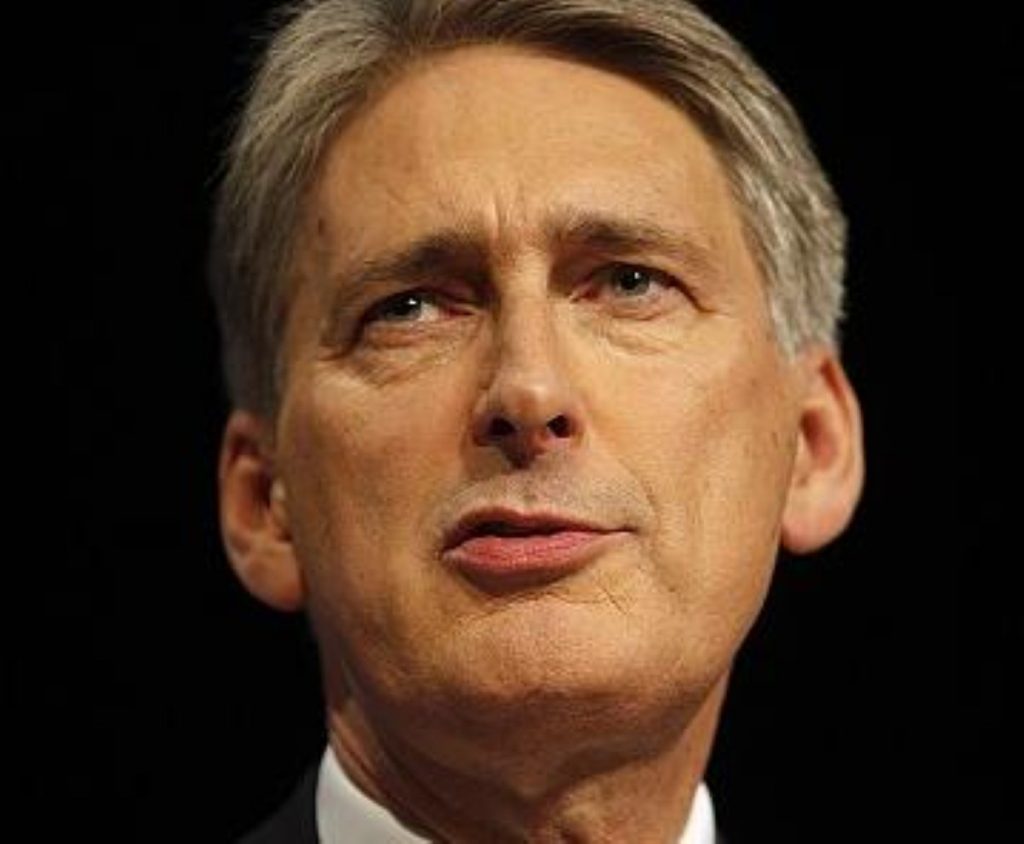Comment: Arms sales trump human rights as UK enters Bahrain
By Andrew Smith
The decision to open the first British base "east of the Suez" since 1971 follows a 'landmark' military agreement which the foreign secretary, Philip Hammond MP, signed with the Bahraini regime earlier this month. The new base will serve as a strategic UK outpost in the Middle East with the government's contribution believed to be around £15 million.
Nicholas Houghton, the chief of the defence staff has described the move as 'symbolic' and a recognition of the 'quality of the relationship' between the two nations. It may bear fruit for political leaders, but it's a relationship that people in Bahrain are opposed to, with large scale protests against the base and against UK ambassador Iain Lindsay.
This closeness has come despite the intensifying crackdown on human rights being undertaken by the Bahraini authorities. In recent days, the head of the banned Al-Wefaq opposition movement, Sheikh Ali Salman, has been arrested and detained, with police using teargas and birdshot to supress protesting crowds.


Last year 50 detainees held a 30-day hunger strike in opposition to government torture. A statement released by the prisoners accused the authorities of a number of serious abuses; including beatings, insults, torture, solitary confinement, and forcing them to stand for long hours.
Earlier this year the king reinforced his authority by introducing a new law that imposes prison sentences of up to seven years on anyone who publicly insults him. Only two weeks ago a prominent human rights activist, Zainab al-Khawaja, was sentenced to three years in prison for tearing up a photograph of him. The UK hasn't just turned a blind eye to the oppression taking place; it has actively promoted the regime that is doing it.
This year saw UKTI DSO, the tax payer funded arms export body, listing Bahrain among its 'priority market' for sales. This will have been music to the ears of BAE Systems, which has made no secret of its intention to sell Typhoons to the Kingdom. Last month Philip Hammond represented their interests by pushing for sales at the Dubai Airshow and taking part in promotional talks that he described as 'very fruitful'.

A number of industry analysts have linked the latest agreement to possible Typhoon sales and arms company interests. The International Institute of Strategic Studies said:
"The mood music created by the naval base agreement can only be of benefit to defence industrial relations between the two sides." BAE has a history of selling weapons to Bahrain, but it is also making its presence felt in classrooms with its 'educational programme', which is designed to promote its brand to Bahraini school children.
The focus on arms promotions has increased since the 2011 uprising, with the UK having licensed £25 million worth of military equipment to Bahrain since then. This has included licences for machine guns, sniper rifles, weapon sights, ammunition and anti-riot shields, all of which can be used for internal repression. These sales have sent out the message that the human rights and civil liberties of Bahraini people are a lesser priority than the profits of arms companies like BAE.
Egyptian youths during the Arab Spring revolt. The Bahraini uprising was put down by troops from Saudi Arabia and the UAE.
This point was emphasised by the foreign affairs committee's 2013 report into relations with Bahrain and Saudi Arabia, which concluded:
"Both the government and the opposition in Bahrain view UK defence sales as a signal of British support for the government."
The same report urged the government to include Bahrain as a 'country of concern' in its annual human rights and democracy report. Unsurprisingly the request fell on deaf ears. Last month the same committee concluded:
"We see little or no evidence that Bahrain has made enough progress in implementing political reform and safeguarding human rights."
Arms sales to tyrannies like Bahrain are not, and can never be, apolitical acts. Not only do they bolster the buyers by giving them military support, they also signify the UK's endorsement and in some cases buy its political silence. With the new naval base opening in the Gulf, and with the possibility of Typhoon sales on the horizon, this looks unlikely to change. As the situation escalates it is becoming increasingly clear that the drive for arms sales is having serious consequences for those facing state repression.
Every December Bahrainis use 'Martyrs Day' to commemorate past victims of torture. Only by ending the political and military support that is strengthening the regime can the UK do its part in ensuring that this year's Martyrs Day brings a stronger outlook for human rights.
Andrew Smith is a spokesperson for Campaign Against Arms Trade (CAAT). You can follow CAAT at @CAATuk.
The opinions in Politics.co.uk's Comment and Analysis section are those of the author and are no reflection of the views of the website or its owners.


